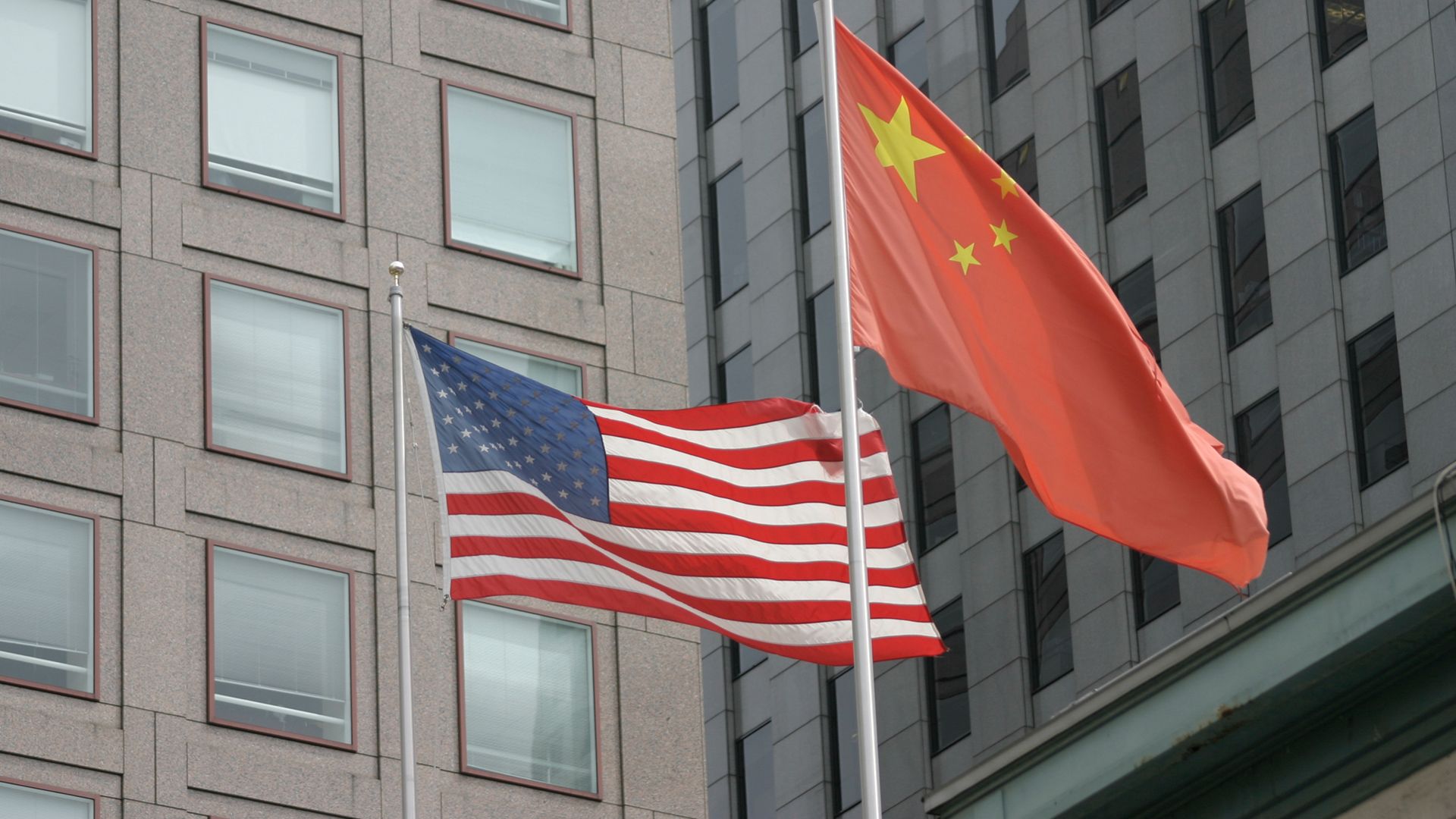China’s playbook for hooking local governments
Add Axios as your preferred source to
see more of our stories on Google.

Photo: Michael Macdonald/EyeEm
Several nations try to influence America's domestic politics, but China has its own distinctive set of methods and goals, according to an FBI official who spoke to Axios about malign foreign influence in the United States.
Why it matters: “Our concern at the end of the day isn't focused on an election event. It is focused on the integrity of our policymaking process and the policymakers' decision-making ability," said the FBI official.
Key takeaway: Beijing is using economic carrots and sticks to cultivate relationships and gradually change perceptions from the ground up, so that hardline policies on China become less popular and harder to adopt.
China, Russia, and Iran all engage in influence activities, but their goals are different, the FBI official said:
- "Russia wants us to tear ourselves apart."
- "Iran wants us to leave them alone.”
- "China wants to manage our decline."
Two other differences between how China and other nations wield covert influence abroad are method and scale.
- Method: China's top tool is its wealth. It uses a toolkit that combines rewards and punishments to shape the behavior of its targets.
- Scale: China's malign influence activities are global in scope and reach all the way to local governments, even town councils in some cases. Russian and Iranian efforts are usually regional and far more limited in scope; they lack China's global reach and economic clout.
- “The scope and scale of what it is that we're facing is unprecedented," said the FBI official. "The growth of Chinese influence has absolutely been tied to the global growth of their economic influence.”
China is particularly focused on people-to-people interactions. Chinese delegations to U.S. cities and states, carefully choreographed trips to China for U.S. government officials and business leaders, and offers of lucrative investment projects and business deals may provide the initial hook.
Beijing's goal is to cultivate more people at the local, state, and federal levels who:
- are friendlier to China-backed development projects
- are less concerned about the geopolitical risk of the Belt and Road Initiative
- recognize the value of telecommunications infrastructure at bargain prices
"If you've got a baseline across the country of folks who say it's not that bad, this is a relationship that we need, these are partnerships that we need, because it's creating jobs," then the U.S. can end up with federal decision-making process where "it makes it harder for us to say there's probably some lines we should not cross," said the official.
- "Perception adds up and creates a policy environment."


